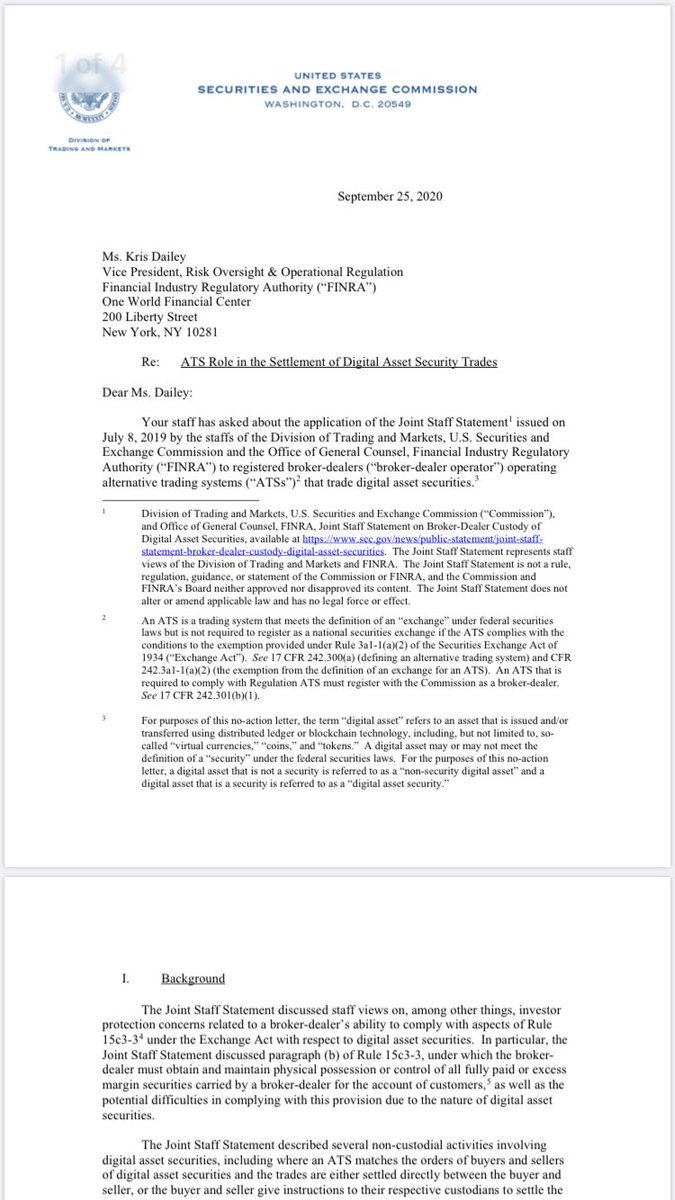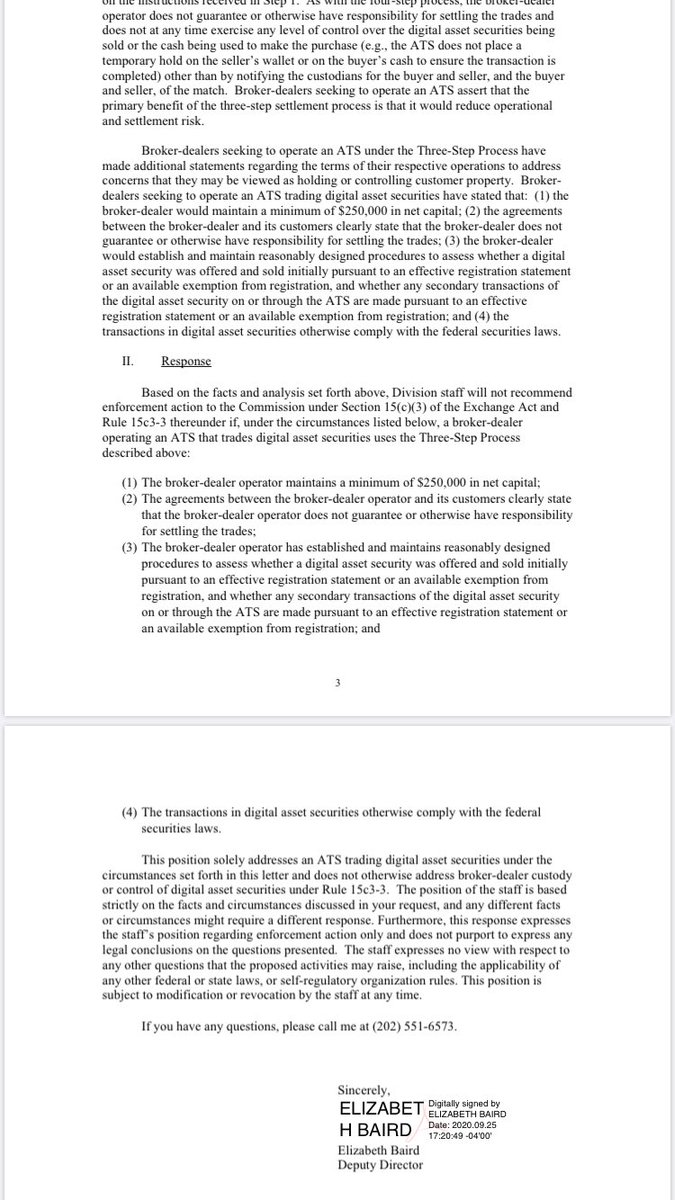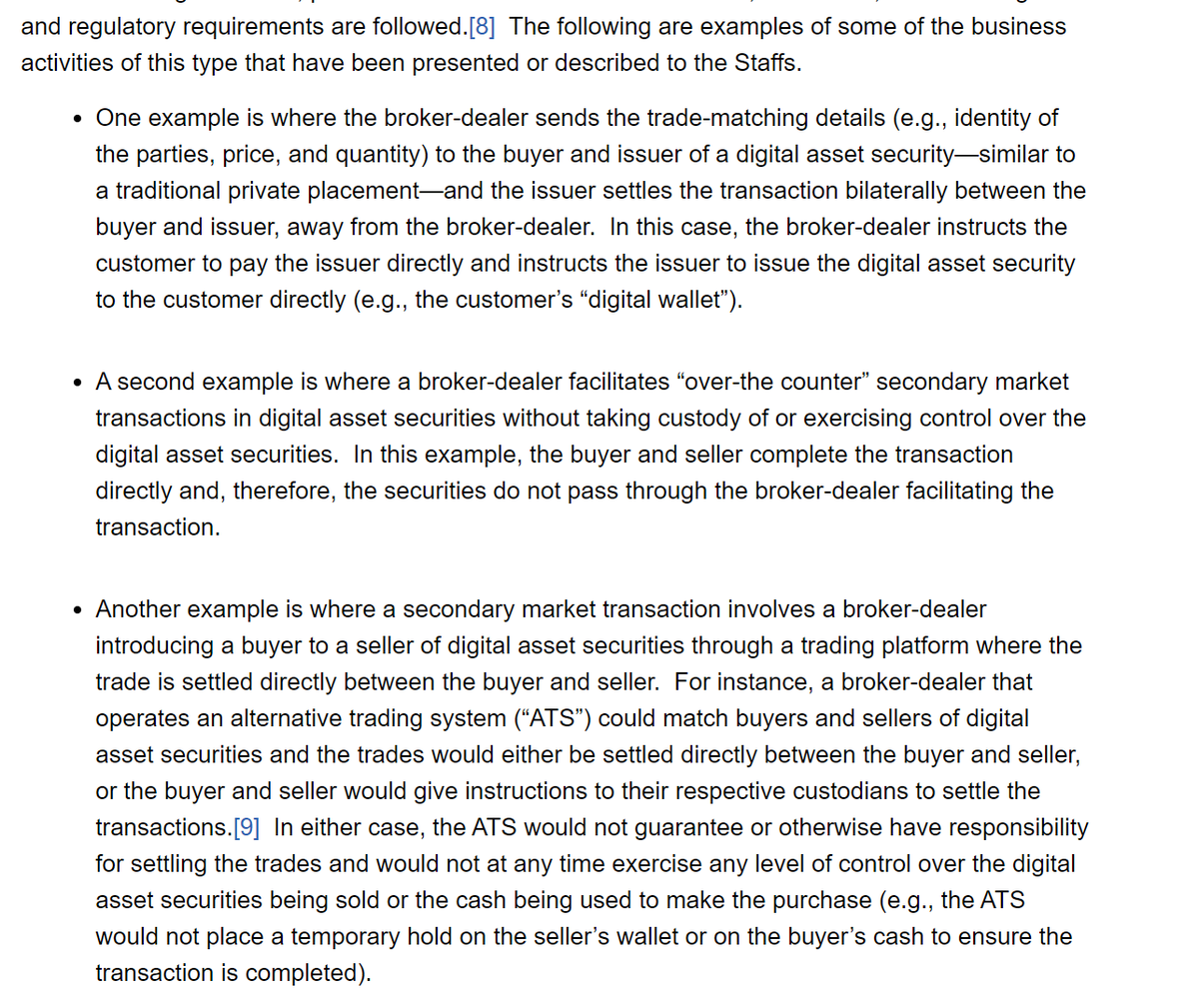
@CaitlinLong_ @uniformlaws @Prof_CarlaReyes I'm very proud of the work done by the brilliant members of the @uniformlaws Digital Asset Working Group incl. @Prof_CarlaReyes @Andrea_Tosato to create this draft. For the twitterati who don't practice law, you may wonder, what's this? & Is it important? YES. A quick #thread
@CaitlinLong_ @uniformlaws @Prof_CarlaReyes @Andrea_Tosato The proposed new article 12 of the UCC would include rules for commercial transactions of what we’ve termed "controllable electronic records" or CERs. This would include a wide variety of #digitalassets including what we generally call #cryptocurrency along with /2
@CaitlinLong_ @uniformlaws @Prof_CarlaReyes @Andrea_Tosato #digitalassets that are related to other assets or legal rights such as precious metals-backed assets, certain types of #NFTs etc. /3
@CaitlinLong_ @uniformlaws @Prof_CarlaReyes @Andrea_Tosato For those reading along who are not US-based, the Uniform Commercial Code is a uniformly adopted set of state laws that govern commercial transactions in the US. This law is critical b/c it provides default rules & gaps fillers that bring predictability to commercial /4
@CaitlinLong_ @uniformlaws @Prof_CarlaReyes @Andrea_Tosato transactions; it standardizes the enforcement of contracts & creates certainty in business relationships. The UCC is written and updated by the @uniformlaws; the group that created the proposal linked to by @CaitlinLong_ inlcuded reps from the @Uniformlaws and from the /5
@CaitlinLong_ @uniformlaws @Prof_CarlaReyes @Andrea_Tosato @AmLawInst, another prominent group of legal scholars who work to clarify, modernize, & improve the law. They collaborated along with observers, like me, who participated to contribute subject matter specific insights. /6
@CaitlinLong_ @uniformlaws @Prof_CarlaReyes @Andrea_Tosato @AmLawInst anyway, back to the proposal. The point of the UCC is to promote standardization in the law affecting commerical transactions- this standardization enables parties to more efficiently transact & provides order and predictiability if transactions fail /agreements are breached. /7
@CaitlinLong_ @uniformlaws @Prof_CarlaReyes @Andrea_Tosato @AmLawInst This proposal, if adopted by the states, would create the default rules which would bring order to transactions involving #cryptoassets, & answer questions like, how do I know if there is a lien on given #bitcoin, or how do I know if someone else has a claim /8
@CaitlinLong_ @uniformlaws @Prof_CarlaReyes @Andrea_Tosato @AmLawInst against this #bitcoin - and if so, whose claim "wins"? It would clarify how parties can create enforcable security interests against #cryptoassets- and does not rely solely on intermediaries. /9
@CaitlinLong_ @uniformlaws @Prof_CarlaReyes @Andrea_Tosato @AmLawInst It would also create rules to answer questions like " can I get good legal title to a #bitcoin that is purchased from a thief" & so on. These questions have been lurking in the background, unaddressed, until now. Once finalized if adopted by the states, /10
@CaitlinLong_ @uniformlaws @Prof_CarlaReyes @Andrea_Tosato @AmLawInst this article would become the law for secured transactions involving these sorts of assets. I'm incredibly proud of the experienced practicioners, academics & colleagues from the "#crypto bar" & hope that the draft in its final form is well received by the States!
@CaitlinLong_ @uniformlaws @Prof_CarlaReyes @Andrea_Tosato @AmLawInst Significant credit goes to the many law professors & experienced practitioners (most of whom aren't on twitter & aren't #crypto specialists) who in concert w/ the #crypto-fluent folks collaborated to craft a proposal that reflect the realities & practices of the #crypto industry.
• • •
Missing some Tweet in this thread? You can try to
force a refresh











